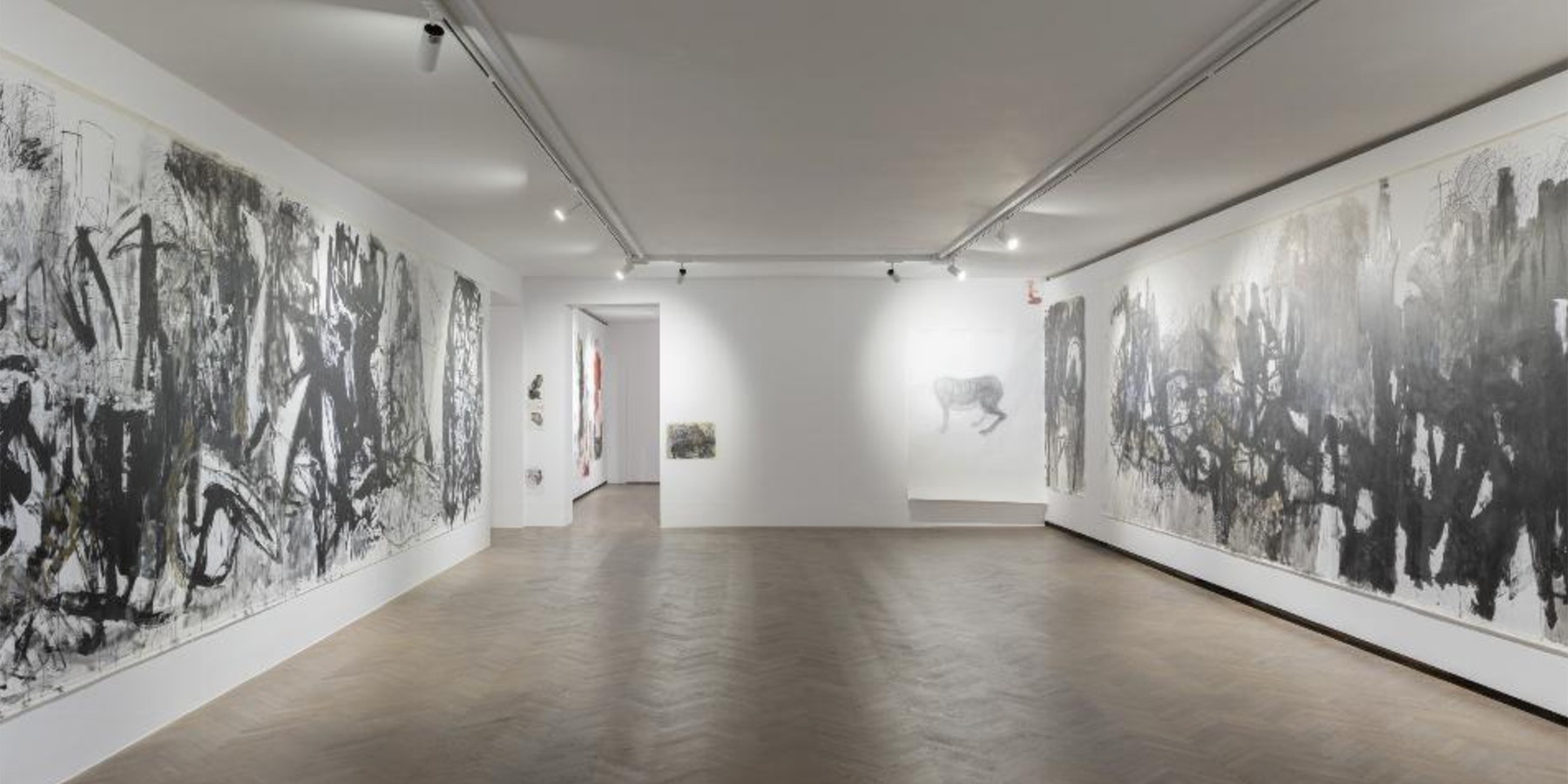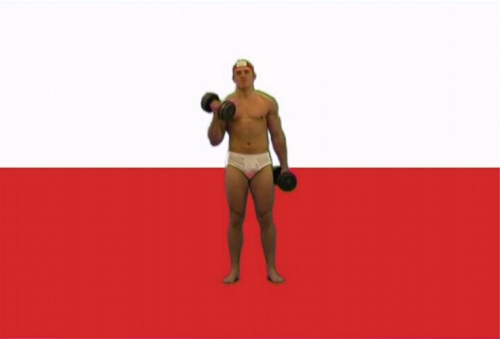Archiwalna
The Games Poles Play
04.05.2012 – 19.05.2012
CCA Derry Londonderry 5-7 Artillery St. Derry – Londonderry BT48 6RG, Northern Ireland
CCA is pleased to announce our participation in Polish Culture Week 2012, with an exhibition featuring a selection of Polish video art curated by Monika Szewczyk.
The Games Poles Play is a selection of video works from the collection of the Podlasie Association for the Encouragement of Fine Arts and the Arsenal Gallery in Białystok. These works illustrate the Polish conditions – a country where the process of political transformation, which started over 20 years ago, still remains open. Where political arguments are alive and bitter and the question of identity causes more and more emotional responses.
The exhibition begins with a work by Łukasz Gronowski – The Patriot – which shows a transvestite singing the Polish anthem with great feeling and care. Involuntarily one starts to ask the question whether the transvestite fits the image of the “true Pole” forced by the extreme right-wing circles.
Definitely more to their liking would be the athletic man practising weightlifting in the work by Kuba Bąkowski. The man in the video is a physical type, sportsman, he works on physical condition against a background of red and white flag and finally he makes gesture resembling the eagle – Polish national emblem. Certainly the pilgrims to the Licheń Sancturay from Kobas Laksa’s video I was at the pilgrimage with mom have a better understanding of what the “true Pole” should be like – a patriot and catholic. The author questions the conventionality of Polish Catholicism, focusing more on its traditionalistic – rather than theological – aspect.
The oldest work in the exhibition is Józef Robakowski’s contemporary classic From my window. The video was shot between the years 1978 and 1999 – from socialist times through the Solidarity movement to the first decade of democracy. It is a journal of sorts, a record of everyday lives of the inhabitants of one apartment block where the artist also lived. In a time where nothing heralded such a strong polarization of opinions in our society, Józef Robakowski observes his neighbours with understanding patience and sympathy – his judgements are cautious, however not devoid of irony.
Trans-Atlantyk is the title of a novel by a prominent Polish writer – Witold Gombowicz. It a grotesque image of Polish emigration, or perhaps even the entire Polish mentality, a critique of superficial patriotism and stereotypical attitude towards the rest of the world. The book, published in 1953, is still very relevant today. Piotr Żyliński, bound over it, reads the text aloud while drinking a colourless liquid from a decanter. During the video we realize that he is not drinking water (like a true Pole), he gradually becomes more and more drunk, he starts to mumble and understands less and less of the text – paradoxically this brings him closer to the books protagonist, closer and closer to the canon.
The protagonist of Jacek Malinowski’s video Marker is a fictional character involved with an informal group of alter-globalists – ‘passive terrorists’ who try do reclaim ‘man’s right to the world’. Marker rebels against the ‘matrix’ fiction of the global capitalistic world, against the ‘system’ itself. However his rebellion seems to be just as unrealistic as the omnipresent ‘global fiction’. Therefore the protagonist falls back to the atavistic gesture of marking out the territory… with urine. This attempt of creating a personal mark, an attempt to reclaim oneself leads only to more frustration.
And this in turn must lead to aggression and true, active terrorism. The protagonist’s manifesto, or rather a number of accusations made by him is equally true in the USA, Great Britain and Poland 20 years after regaining our freedom. However in Poland it is a bit different, because it questions our independence – it is not enough to regain freedom, one must also learn to live with it.
In his Video clip Paweł Althamer asks young people how do they see their future? What do they expect? What do they dream of? The young people belong to different social groups and come from different circles. Their radical declarations are good illustration of social divisions and at the same time they create a mental image of young Poles – maybe a little lost, which is reflected in the song’s chorus “I don’t have no ego, I don’t have identity” – but at the same time full of hope that they will find their way in the contemporary reality, that they will manage and that their choices will be correct or at least effective. This generation, which has not been marked by the experience of communism, sometimes repeats the stereotypes and auto-stereotypes grounded in a society building a democracy, but also gives hope of neutralizing contemporary tensions and conflicts.
The artists, observing their own post-territories, examine the reality surrounding them in all of its historic, social and cultural complexity. By reacting immediately to every irregularity they present a broken and conditioned by lack of stability identity of the post-transformation society – a kind of mental map.
Works are generously on loan from the collections of Arsenal Gallery and Podlaskiego Towarzystwa Zachęty Sztuk Pięknych.
Curator: Monika SzewczykPaweł ALTHAMER Kuba BĄKOWSKI Łukasz GRONOWSKI Jacek MALINOWSKI Kobas LAKSA Piotr ŻYLIŃSKI Józef ROBAKOWSKI

PLAN YOUR VISIT
Opening times:
Thuesday – Sunday
10:00-18:00
Last admission
to exhibition is at:
17.30
